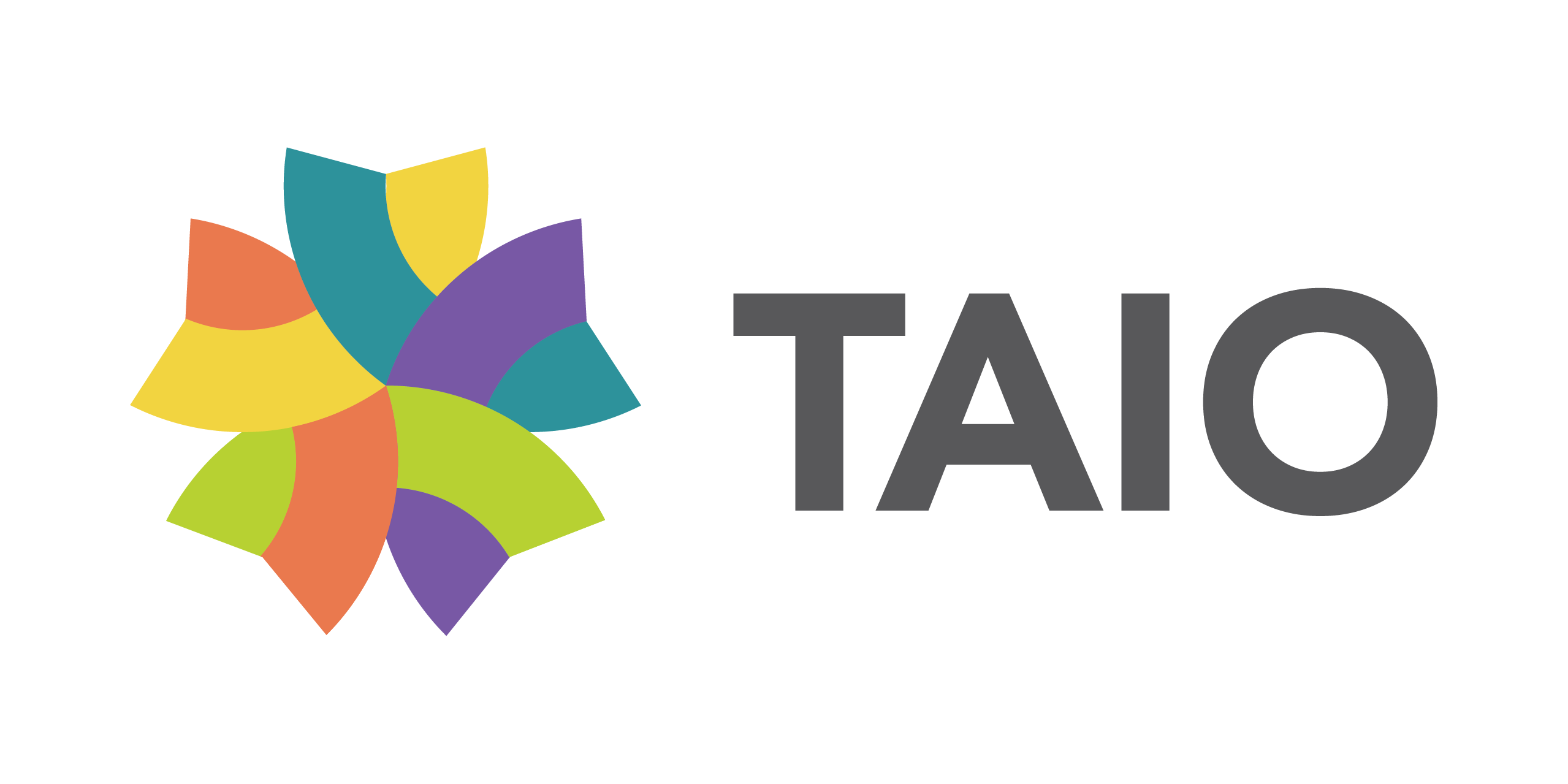Running a home healthcare business comes with numerous challenges, from ensuring compliance with regulations to maintaining a reputable brand image. These time-consuming yet important tasks can divert your focus from providing top-notch patient care to your clients. This is especially true if you’re a small business operating on a thin margin.
By outsourcing key business operations, you can streamline your processes, reduce operational costs, and improve service quality. Discover how outsourcing home health services and other business functions can help you achieve peak performance while allowing you to focus on what you do best: caring for your patients.
Operational needs vary widely among companies. Nonetheless, here are some roles that you can outsource to another service provider.
Table of Contents
Key Takeaways



Patient Intake Specialist
A Patient Intake Specialist is the cornerstone of initiating patient care, managing first impressions, and streamlining the intake process.
By outsourcing this critical role, you can ensure that your in-house team remains focused on delivering high-quality healthcare while improving operational efficiency. Outsourcing this position can also enhance your business’s overall service levels.
Here are some tasks you can expect from a Patient Intake Specialist:
- Initial Contact and Assessment: The Patient Intake Specialist gathers information about the patient, including health condition, medical history, and specific healthcare needs.
- Information Verification: The specialist verifies personal details, insurance information, and eligibility for services. This often involves liaising with insurance companies, Medicare, or Medicaid to confirm coverage and benefits.
- Outsourcing Customer Service and Follow-Up: The specialist schedules initial visits, assigns healthcare professionals like nurses and therapists and ensures the patient receives a comprehensive care plan. They also handle follow-up activities to ensure the care plan’s effectiveness, making adjustments as necessary.
- Documentation and EMR Encoding: Ongoing patient management and regulatory compliance involve maintaining accurate and comprehensive records of all interactions, assessments and plans.
- Education and Communication: The specialist provides patients and families with detailed information on the home healthcare process, including available services and costs. The specialist acts as a liaison, ensuring seamless communication between patients, families, and healthcare providers.
Authorization Specialist
An Authorization Specialist’s main task is to ensure that the cost of all services is covered by insurance. If you outsource this role, you can streamline processes, reduce delays, and enhance patient satisfaction. This business practice can also make your company more efficient and compliant with industry standards. An Authorization Specialist is usually responsible for these tasks:
- Insurance Verification: The Authorization Specialist checks patients’ insurance coverage and benefits to confirm service eligibility. They communicate with insurers and government programs to detail plan specifics and submit required medical documentation for service authorization.
- Documentation: An Authorization Specialist maintains detailed records of communications with insurance companies, authorizations obtained, and relevant clinical information. This documentation supports auditing, compliance, and accurate billing.
- Coordination with Healthcare Providers: This role also works closely with doctors, nurses, and other healthcare professionals to gather the medical information and documentation needed for authorization requests and ensure all requirements are met.
- Patient Communication and Problem Resolution: The role involves informing patients and families about authorization statuses, insurance benefits, and potential out-of-pocket costs.
Medical Quality Assurance (QA) Professional
Ensuring the highest quality of patient care is non-negotiable in home healthcare. A Medical Quality Assurance (QA) Professional ensures that your services meet or exceed industry standards, providing safe and effective care.
Outsourcing this role can help your business maintain high service levels, ensure compliance, and foster continuous improvement without overburdening your in-house staff.
Here are the tasks that an outsourced Medical QA Professional can do for your business:
- Business Practice Compliance: The Medical QA Professional ensures that all aspects of your business comply with established industry standards, state and federal laws, and guidelines from accrediting bodies. This compliance guarantees that your services are both safe and effective.
- Policy Development: The QA Professional can develop, review, and update policies and procedures in coordination with clinical and administrative staff to implement best practices.
- Auditing and Monitoring: Regular audits and monitoring of clinical records, patient care practices, and administrative processes help identify areas for improvement. This ensures consistency in care delivery and adherence to established protocols.
- Training and Education: Providing training and education ensures that all staff members are competent and informed about the latest standards and expectations.
- Incident Investigation and Reporting: Investigating incidents or complaints related to patient care, determining root causes, and implementing corrective actions are crucial responsibilities for the medical QA professional. The professional also must properly document and report incidents according to regulatory requirements.
Medical Coder
A medical coder’s main task is to assign appropriate codes for diagnoses and procedures using ICD, CPT, and HCPCS to ensure timely reimbursement and policy compliance.
However, a medical coder’s role entails more than assigning codes; it also involves reviewing and auditing records and coordinating with other professionals. Outsourcing the role of a Medical Coder to an outsourced provider allows your in-house staff to focus more on patient care, improving overall efficiency and service quality.
Here’s a more detailed discussion of what you can expect from an outsourced Medical Coder:
- Reviewing Medical Records: The Medical Coder meticulously reviews patients’ medical records to understand diagnoses, treatments, procedures, and services provided. This involves interpreting clinical documentation and ensuring it accurately reflects the care given.
- Compliance and Accuracy: Ensuring coding adheres to laws, guidelines, and HIPAA regulations is crucial for maintaining accuracy, preventing underbilling or overbilling, and complying with healthcare standards.
- Coordination with Healthcare Professionals: Communicating with nurses, therapists, and other healthcare professionals is often necessary to clarify coding details. This ensures that all coded data is precise and complete.
- Audit and Validation: Medical Coders also do self-audit and respond to audits from insurance companies who reviews accuracy, completeness and correctness of insurance claims.
Order Management Specialist
An Order Management Specialist manages and facilitates medical orders, ensuring that patients receive the necessary care and equipment promptly. By outsourcing an Order Management Specialist, your company will benefit from these services:
- Order Management and Execution: The specialist obtains, documents, and confirms medical orders from physicians or other healthcare providers. This includes prescriptions for medication, orders for medical tests, and directives for treatment plans or therapies.
- Verification and Clarification: The specialist verifies orders and clarifies any ambiguities or errors with healthcare providers to ensure correct interpretation and implementation by the home health care team.
- Coordination with Healthcare Providers: Acting as a liaison, the specialist communicates any changes in the patient’s condition that might require adjustments to the orders, ensuring that such changes are authorized and documented accurately.
- Compliance and Documentation: All medical orders must comply with regulatory requirements and be properly documented in patient health records. This ensures adherence to legal and professional standards and facilitates billing and reimbursement.
- Follow-Up and Monitoring: The specialist monitors the execution and effectiveness of medical orders, following up as necessary to address any issues or to renew orders according to the healthcare provider’s instructions and the patient’s needs.
Medical Billing Specialist
A Medical Billing Specialist is responsible for managing and executing the billing, turning medical codes into medical claims to be submitted to insurance providers.
Outsourcing this role to a service provider can improve efficiency, reduce errors, and ensure timely reimbursement. This can also lower costs associated with billing and administrative tasks.
If you’re looking to outsource a Medical Billing Specialist, you can expect them to do these tasks:
- Patient Billing Information: The specialist collects, verifies, and manages patients’ billing information, including insurance details and eligibility for home health services. Maintaining accurate and up-to-date records of sensitive data is crucial for ensuring timely payment.
- Claim Submission and Tracking: Submitting claims for reimbursement to the appropriate payer and tracking their status ensures timely payment. The specialist follows up on denied or rejected claims, rectifies any issues, and resubmits claims as necessary.
- Payment Posting and Reconciliation: The specialist posts payments received from payers and reconciles them with the billed amounts, ensuring that payments are correctly applied to the appropriate patient accounts.
- Patient Invoices and Statements: The specialist generates and sends invoices for out-of-pocket expenses or co-pays. They also manage the collection of unpaid patient balances.
[title]
[text]
PCP Call-Out Specialist
A PCP (Primary Care Physician) Call-Out Specialist serves as a vital link between the home health agency, patients, and primary care physicians. Outsourcing this role ensures seamless communication and coordination, improving patient care and operational efficiency.
This approach also benefits small businesses looking to optimize their resources so their internal team can focus on caring for their customers. Here are the tasks you can expect from a PCP (Primary Care Physician) Call-Out Specialist:
- Communication and Coordination between Agency and Physician: The specialist maintains clear communication with the patient’s primary care physician, updating them on the patient’s health and home care details. They also integrate the physician’s orders into the care plan, ensuring cohesive and coordinated care.
- Documentation: Accurate documentation of all communications between the home health agency and the primary care physician is maintained. This comprehensive record ensures consistency and quality in patient care.
- Follow-Up: Following up on any requests, orders, or prescriptions made by the primary care physician ensures they are received and implemented correctly by the home health care team, preventing any lapses in patient care.
- Problem Solving: The specialist addresses any issues or concerns that arise from either the primary care physician or the home health team regarding the patient’s care. This includes clarifying orders, addressing discrepancies, and making necessary adjustments to the care plan.
Clinician Recruiter
A Clinician Recruiter identifies, attracts, and hires qualified healthcare professionals to provide clinical services in home health care. Outsourcing this role can ensure that your business has the best human resources. This benefits small businesses that aim to maintain a strong workforce.
Here are the tasks you can expect from a Clinician Recruiter:
- Identifying Hiring Needs: The recruiter works closely with company management and clinical teams to understand staffing needs, including the specific qualifications and experience required for each clinical role. This ensures that all hiring efforts are aligned with the agency’s requirements.
- Sourcing Candidates: The recruiter finds potential candidates using various methods, such as job postings, social media, professional networks, healthcare job fairs, and recruiting databases. They may also engage in headhunting or networking to attract top resources.
- Screening and Evaluation: The role also involves reviewing resumes, conducting initial interviews, and assessing potential hires’ qualifications, experience, and fit. This includes verifying credentials, checking references, and ensuring candidates meet all necessary regulatory and compliance requirements.
- Coordination of Interviews: The recruiter arranges for selected candidates to meet with clinical and administrative leaders within the home health company. This process may include multiple rounds of interviews or shadowing opportunities to assess the candidate’s fit and understanding of home health care.
- Offer and Negotiation: The recruiter extends job offers and negotiates employment terms such as salary, benefits, and schedules, ensuring they align with budget constraints and industry standards.
Medical Transcriptionist
A Medical Transcriptionist plays a critical role in the documentation and record-keeping process by converting voice recordings into written text. By the nature of this position, you don’t need to hire someone from the same time zone. Many home healthcare businesses hire outsourcing companies that specialize in this role.
Here’s what you can expect from a Medical Transcriptionist:
- Transcribing Audio Records: The Medical Transcriptionist listens to voice recordings made by physicians, nurses, therapists, and other healthcare professionals and transcribes these into written text. These recordings include patient assessments, treatment plans, progress notes, and other relevant clinical information.
- Editing and Formatting: In addition to transcribing audio records, medical transcriptionists review and edit the transcribed text for grammar, clarity, and consistency while ensuring that the transcription accurately reflects the audio recording. The transcriptionist also formats documents according to the standards or legal requirements of your company.
- Medical Terminology and Language: To accurately transcribe recordings, one must have a strong understanding of medical terminology, abbreviations, and healthcare jargon. Familiarity with home health care terms related to diagnoses, treatments, and procedures is crucial.
- Confidentiality and Security: Handling sensitive patient information requires strict adherence to HIPAA guidelines and other privacy regulations. Ensuring that patient information remains confidential and secure is a top priority for the transcriptionist.
- Review and Verification: Clarifying unclear or inconsistent information with healthcare providers and cross-referencing patient records or other medical documents ensures that the final transcript is accurate and complete.
Credentialing Specialist
A credentialing specialist in healthcare verifies the credentials, licenses, and certifications of medical professionals to ensure they meet regulatory and organizational standards before they are hired or practice.
Verifying a professional’s credentials takes a lot of time as it involves coordinating with different agencies, looking at different records, and conducting background checks. They are also responsible for ensuring that professionals in your roster have updated credentials and requirements. Outsourcing this role can help your on-shore staff focus on providing quality care without being bogged down with tedious admin tasks.
Here’s a more detailed list of what you can expect from a Credentialing Specialist:
- Credential Verification: This process verifies and confirms the authenticity of healthcare professionals’ qualifications, including education, licenses, and certifications, through direct contact with primary sources.
- Record Maintenance and Compliance: This position keeps credentials up to date, tracks renewal dates, and ensures all processes adhere to laws and accreditation standards.
- Provider Enrollment and Privileging: This department manages the enrollment of healthcare providers with insurance networks and authorizes specific services they can provide based on their qualifications.
- Communication and Coordination: This position serves as the main liaison between healthcare providers, the agency, and external entities regarding credentialing issues.
- Audit and Policy Support: Prepares documentation for audits, contributes to policy development, and ensures procedures reflect current best practices.
- Continuous Education: Stays updated on changes in credentialing standards and healthcare regulations to maintain agency compliance and service quality.
Why Hire an Outsourced Service Provider
Hiring an outsourced company can be a game-changer for your home healthcare business. Nowadays, you can outsource tasks beyond search engine optimization and social media marketing. Outsourcing key roles like medical coding, customer service, and human resources can lead to improved efficiency and reduce the cost of running your business.
Many businesses outsource these functions to specialized service providers, allowing them to tap high-skilled resources all over the world. When you choose to work with outsourcing companies, you benefit from their extensive training and compliance with best practices. These outsourced providers bring specialized knowledge, ensuring high accuracy and efficiency in tasks such as medical coding and billing. Moreover, outsourcing training and human resources to these service providers can help streamline your operations, allowing your in-house team to concentrate on patient care.
Home health outsourcing offers expertise, flexibility, and scalability, adapting to your business needs as you grow. This adaptability is particularly beneficial if you’re a small business looking to expand without the added burden of hiring and training new staff. Additionally, outsourcing information technology services can further enhance your operational capabilities, providing robust support for your healthcare management systems.
Frequently Asked Questions
Concerns about quality are valid. Before outsourcing, define clear benchmarks for quality that align with industry standards and your specific needs. This could include accuracy rates for tasks, turnaround times for services, and clear communication protocols.
Your best bet is selecting a reputable partner with a proven track record of quality care in home healthcare. Look for certifications, client testimonials, and case studies showcasing their commitment to quality.
Starting small is key. Don’t try to outsource everything at once. Identify specific jobs or roles creating bottlenecks or administrative burdens within your agency. Consider non-critical tasks like intake scheduling or appointment reminders as good starting points.
Develop a Request for Proposal (RFP). An RFP outlines your specific needs and expectations for the outsourced services. This helps potential partners understand your requirements and submit tailored proposals.
Outsourcing can be a cost-effective strategy, but it depends on several factors. While there are potential savings in terms of salaries and benefits for outsourced staff, there are also associated costs with the partnership itself.
It can free up your internal staff to focus on core competencies, potentially improving overall efficiency. By streamlining processes and reducing administrative burdens, you can take on more patients and generate additional revenue.
However, make sure the savings outweigh the cost of the outsourced services. It’s important to conduct a cost-benefit analysis. Factor in all potential costs and savings to determine if this aligns with your financial goals.



